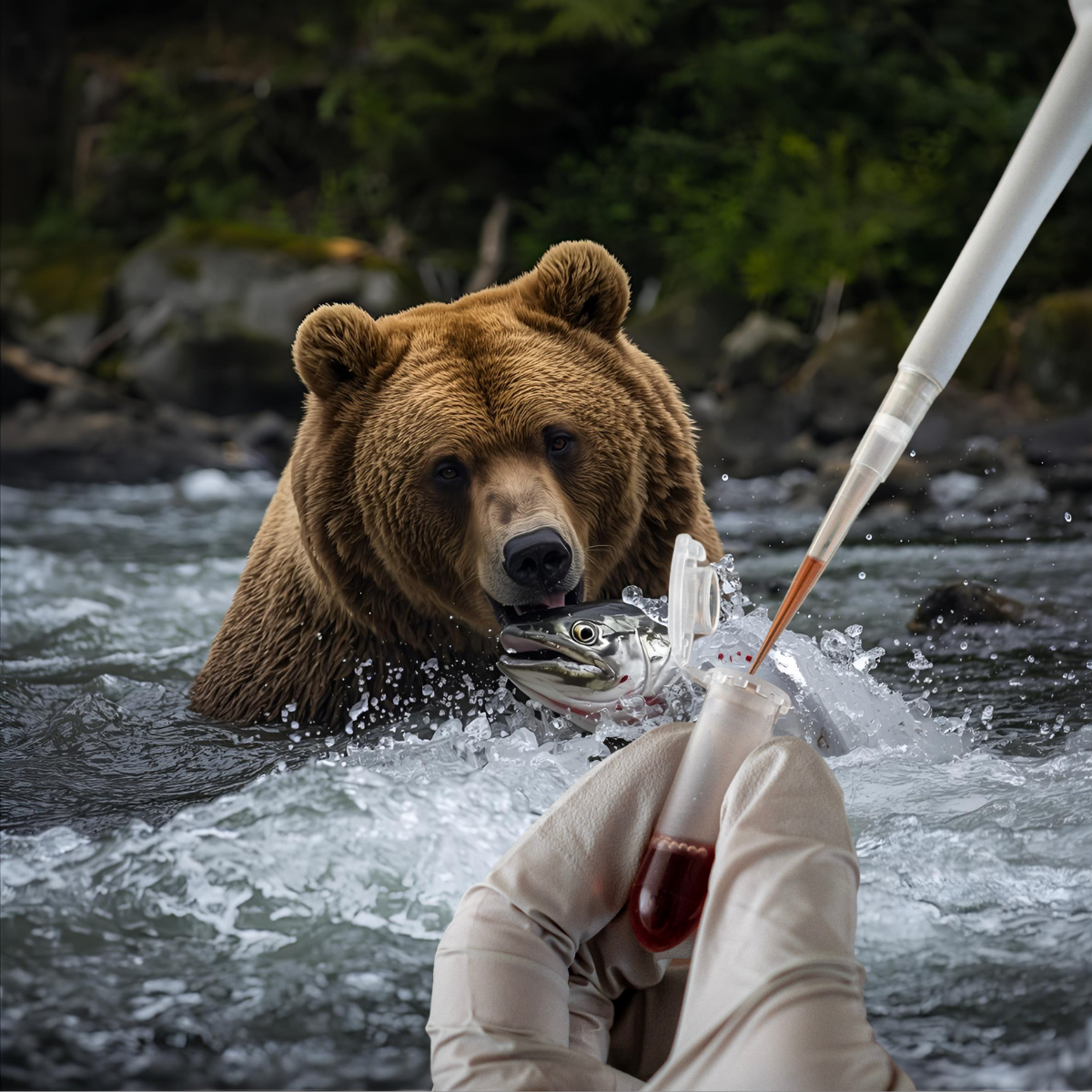
We’re proud to share that DivjaLabs co-founder Dr. Astrid Vik Stronen has co-authored a landmark paper published in G3: Genes | Genomes | Genetics (October 2025) titled “Grizzly bear population genomics across a coastal–interior ecotone in British Columbia, Canada.”
The study provides the first whole-genome analysis of grizzly bears across one of western Canada’s most striking ecological transitions: from salmon-rich coastal rainforests to the dry interior plateau.
Why it matters
Grizzly bears roam widely across these environments, but until now scientists had little insight into how their genomes reflect adaptation to dramatically different diets, climates, and landscapes. Using high-coverage whole-genome resequencing of 31 bears and more than 3.9 million genetic variants, the team uncovered subtle but meaningful genetic separation between coastal and interior populations—evidence of isolation-by-distance and possible local adaptation.
Among the discoveries was a region of the genome near the creatine kinase M-type (CKM) gene—key to muscle energy metabolism—that differed consistently between coastal and interior bears. This finding suggests that metabolic adaptations may help interior bears cope with seasonal food scarcity while coastal bears thrive on salmon-rich diets.
Collaboration and Indigenous insight
The research was developed in collaboration with First Nations stewardship offices, including the Nuxalk Nation. Local ecological knowledge helped shape hypotheses about how grizzly movement through mountain valleys like Bella Coola supports gene flow and access to key food sources such as salmon.
Implications for conservation and resilience
By combining genomics with ecological and cultural perspectives, the study provides actionable knowledge for wildlife managers. It highlights the importance of maintaining connectivity corridors across the Coast Mountain Range, where bears—and the ecosystems they support—depend on access to both coastal and inland resources.
As Dr. Stronen notes, “Understanding how wide-ranging species like grizzly bears adapt to local environments helps us anticipate their resilience under climate change and informs smarter conservation planning.”
About DivjaLabs
At DivjaLabs, we explore how genetics, ecology, and data science can accelerate understanding of biodiversity and adaptation. Dr. Stronen’s contribution to this work exemplifies our mission—bridging scientific innovation with conservation impact.